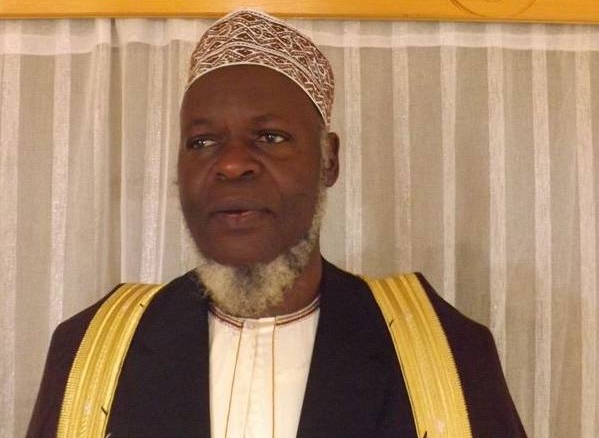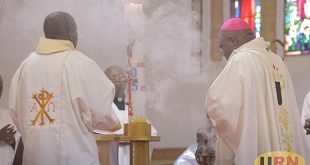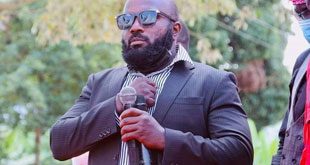
Kampala, Uganda | THE INDEPENDENT | The Uganda Muslim Supreme Council-UMSC General Assembly has set term limits for the office of the Mufti. The Assembly was held at the Gaddafi national mosque in Old Kampala on Wednesday.
The Mufti is the highest-ranking position in the country’s Muslim leadership, and over the years, there have been calls for term limits for whoever holds the position. The call for time restriction was one of the suggestions raised during consultations on the proposed constitution.
The office of the Mufti piqued the curiosity of many delegates during the constitution revision process, according to a source who attended the current General Assembly but requested anonymity to speak freely about the subject.
“Many leaders favored regulating the Mufti’s term of office. The article in question generated discussion. As the (Uganda Muslim) Supreme Council works to streamline the leadership posts, some delegates contended that it is past due for the Mufti to only occupy office for a predetermined period of time. They said that doing so would end the power conflicts inside the Muslim community,” the source added.
The current UMSC Constitution sets the age limit for the Mufti and Deputy Mufti at 70 years of age. The Constitution was drafted by Nsambu and Lubega Advocates in 1986 during the reign of Sheikh Rajab Kakooza as Chief Khadi.
However, the draft constitution which is being scrutinized had proposed that the mufti should be at least 55 years old, but not exceeding 80 years, and be eligible to serve one 10-year term.
Ashraf Zziwa Muvawala, the UMSC spokesperson told our reporter that after a long discussion, it was agreed that the Mufti would hold office for two five-year terms.
Zziwa adds that the delegates, however, the members said the academic qualification of candidates for the top office must be holding a Master’s degree in sharia from a recognized Muslim University.
Zziwa says that the assembly also resolved that the candidates for the office of the Mufti must prove that they are fluent in Arabic, English, and Swahili languages.
The age of candidates for the office of the Mufti was another difficult issue, according to Kampala Regional Kadhi, Sheikh Hamid Sserwadda Kyewalyanga. Sheikh Sserwadda notes that delegates rejected the draft constitution’s recommendation that candidates be at least 55 years old and instead decided to set the lowest age restriction at 40 and the higher age limit at 70 years.
Other issues that were debated included how the Mufti will be elected. The draft had suggested changing the present constitution so that the Mufti is elected in camera by a college of learned sheikhs rather than by the general assembly but this was rejected.
Hajj Ismael Malimasi, a delegate from the Ibanda Muslim district, says that the assembly insisted that the powers to elect the new Mufti could not be left in hands of 21 sheikhs.
Hajj Malimasi further adds that the proposition that the Mufti serves as the chairman of the UMSC was rejected by the assembly. He says that delegates noticed that if they did this, they would be handing the mufti a lot of uncontrolled authority.
Under the current UMSC Constitution, the reigning mufti His Eminence Sheikh Shaban Ramadhan Mubaje is supposed to relinquish office when he clocks 70 years. This means that a 66-year-old Muslim leader is expected to retire in 2025.
However, information obtained from the general assembly didn’t specify whether the mufti will be left to finish his term of office or the office will also fall vacant when the new constitution is passed. When our reporter asked the spokesperson on the matter, he noted it was one of the issues that the delegates were required to clarify but no definite answer had been obtained.
Away from the office of the Mufti, women have also been considered as the assembly suggested creating a position for a woman in the directorate of sharia. The deputy director of sharia will have the position of the highest senior woman in the UMSC leadership, according to Zziwa, who verified this development.
The establishment of a tenth Muslim region with jurisdiction over the regions of Karamoja, Teso, Kotido, and Kumi is one of the other issues that have been taken into consideration.
The delegates have also approved the establishment of The Uganda Muslim Supreme Council Endowment Trust, which would hold and manage all UMSC investments and securities as well as Muslim-owned land, buildings, and other immovable property.
The provision that establishes the Endowment Trust also specifies how the UMSC, regional, district, county, and mosque leadership should divide the proceeds obtained from Muslim holdings.
By the time of publishing this story, delegates were still debating other provisions of the draft constitution moving article by article. Among the contentious issue that had not been concluded is the office of the secretary-general.
Meanwhile, several delegates have been complaining that the management delayed availing them copies of the constitution, which delayed business.
After reviewing and approving the draft constitution, the general assembly is also expected to elect members of the electoral commission which will guide on the process that we see Muslims elect new leaders from their respective mosques.
It should be mentioned that some Muslims opposed the current general assembly and constitution revision, claiming that the entire process has been handled unlawfully. The aforementioned part initially petitioned the President to halt the General Assembly on Tuesday of this week, and when their request failed to yield fruits, they responded by suing the present UMSC administrators.
******
URN
 The Independent Uganda: You get the Truth we Pay the Price
The Independent Uganda: You get the Truth we Pay the Price



